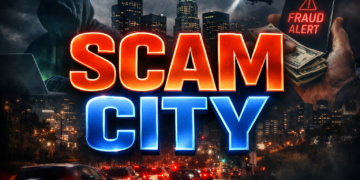Scioto County Sheriff David Thoroughman stated that his office has received a complaint by a citizen, advising of a scam involving the use of fake checks. The resident advised that they received what appeared to be a legitimate check. They advised that they then received texts, advising them to deposit the check immediately, then message back when the check was deposited.
Fortunately, this scam attempt had a good outcome. The resident did their research and found that this was a scam. Sheriff Thoroughman would like to remind everyone to never deposit a check and send money back to someone. And, never pay someone who insists you pay with a gift card or by using a money transfer service. Stop and talk to someone you trust. Before you do anything else, tell someone — a friend, a family member, a neighbor — what happened. Talking about it could help you realize it’s a scam.
Here are Four Signs That It’s a Scam
- Scammers PRETEND to be from an organization you know.
Scammers often pretend to be contacting you on behalf of the government. They might use a real name, like the Social Security Administration, the IRS, or Medicare, or make up a name that sounds official. Some pretend to be from a business you know, like a utility company or even a charity asking for donations.
They use technology to change the phone number that appears on your caller ID. So the name and number you see might not be real.
- Scammers say there’s a PROBLEM or a PRIZE.
They might say you’re in trouble with the government. Or you owe money. Or someone in your family had an emergency. Or that there’s a virus on your computer.
Some scammers say there’s a problem with one of your accounts and that you need to verify some information. Others will lie and say you won money in a lottery or sweepstakes but have to pay a fee to get it.
- Scammers PRESSURE you to act immediately.
Scammers want you to act before you have time to think. If you’re on the phone, they might tell you not to hang up so you cannot check out their story.
They might threaten to arrest you, sue you, or take away your driver’s license. They might even say your computer is about to be corrupted.
- Scammers tell you to PAY in a specific way.
They often insist that you pay by sending money through a money transfer company or by putting money on a gift card and then giving them the number on the back.
Some will send you a check (that will later turn out to be fake), tell you to deposit it, and then send them money.
Again, Sheriff Thoroughman would like to remind everyone to never pay someone who insists you pay with a gift card or by using a money transfer service. And, never deposit a check and send money back to someone. Stop and talk to someone you trust. Before you do anything else, tell someone — a friend, a family member, a neighbor — what happened. Talking about it could help you realize it’s a scam.
























































































